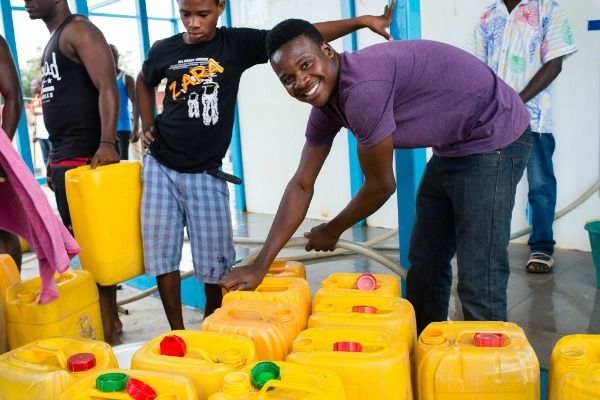Article by Joseph Ampadu-Boakye, Market Development and Partnerships, Safe Water Network-Ghana
The Conrad N. Hilton Foundation has been funding the water sector in sub-Saharan Africa for twenty-five years. However, the Foundation is more than just a funder. They have played a leadership role in bringing attention to the need to provide access to safe water on a sustainable basis.
Blogging from Ghana from the Beyond the Pipe forum, an annual event that convenes leadership from the public and private sectors, development agencies, and the NGO community to develop concrete actions to advance community water supply.
March 22, 2015 is the last World Water Day under the Millennium Development Goals (MDGs), which end this year. The MDGs set an ambitious target of halving the number of people without access to water—and to the credit of the global community, the overall target was achieved. However, over the past decade the limitations of the MDGs have become increasingly apparent, notably their focus on outputs—namely the number of water points constructed, with little attention to the quality of either the water provided or the sustainability of the service. March 22, 2016 will be the first World Water Day under the Sustainability Development Goals (SDGs), which are being structured to address the shortcomings of the MDGs.
The Conrad N. Hilton Foundation has been funding the water sector in sub-Saharan Africa for twenty-five years. However, the Foundation is more than just a funder. They have played a leadership role in bringing attention to the need to provide access to safe water on a sustainable basis. More recently, this has included support for market-based approaches, which is where our paths intersect.
Safe Water Network, founded in 2006, has focused on addressing the persistent problem of sustainable, high-quality, water supply. It utilizes core market principles including payment for water; affordable pricing; high-quality, reliable service; financial incentives for operators; operations and maintenance costs covered by revenue; and, where feasible, capital recovery for reinvestment. We balance the market principles with our mission to increase sustainable access to safe water for the poor by ensuring affordability and inclusiveness.
The model is anchored by the Safe Water Station (SWS) – community-level water treatment facilities that produce high-quality water sold at affordable rates. The locally-owned and operated Stations generate enough revenue from water sales to cover operating and maintenance costs (in some cases they recover capital as well).
In 2009, we began operations in Ghana with five Stations. These provided the first evidence for the potential of the market-based model in Ghana. Building from this experience, in 2011 the Conrad N. Hilton Foundation funded the first Market Assessment to evaluate the opportunities, potential scale, and barriers to the model in Ghana. Published in 2013, the Assessment showed the 4–8 million Ghanaians could benefit from a market-based model. However, it also highlighted several challenges to achieving that scale, including:
- Building capacity at the local community level
- Developing water treatment technologies with lower capital and operating costs
- Improving the enabling environment for stronger private-sector participation
- Increased finance for the water sector

Building from the Assessments findings, we moved to our expansion phase – demonstrating the viability of the market-based model in 100 communities and building local capacity; introducing low-cost technology; and strengthening the enabling environment for private sector participation. In 2013, the Hilton Foundation supported the expansion phase as a lead funder of the Ghana program. Today we have over 20 Stations providing more than 40 communities and 120,000 people with reliable, sustainable access to high quality, affordable water.
Moving the needle on the global water crisis requires more than resources for new water points – it requires genuine commitment to identify and develop new solutions and engage with other organizations to share the results. Core support from the Conrad N. Hilton Foundation is helping Safe Water Network improve a model for a market-based approach to community water supply; demonstrate its sustainability financially, operationally, and among consumers; engage with sector leaders for wide scale replication; and systematically address the barriers to national-level implementation. This partnership is preparing the ground for sustainable water supply to reach millions of people across Ghana.